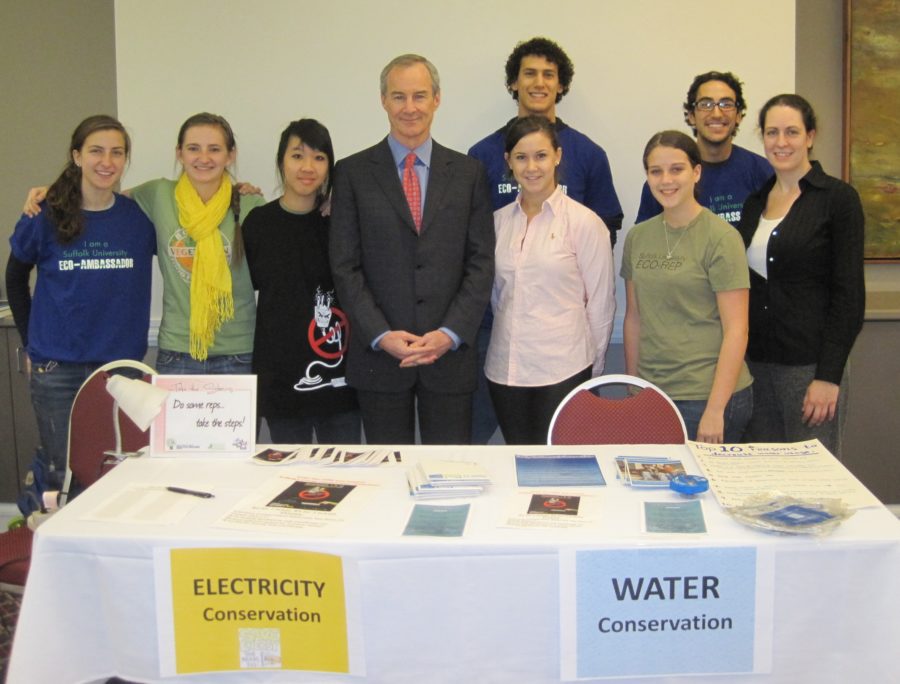Suffolk University has been named one of the nation’s most environmentally responsible colleges for a second consistent year in The Princeton Review’s Guide to 311 Green Colleges.
“It is an honor for Suffolk University to be included in the Princeton Review’s guide,” said Erica Mattison, campus sustainability coordinator. “It’s a testament to the steps the university has taken over the past few years to become an environmentally oriented institution.”
The guide, in partnership with the U.S. Green Building Council, seeks the most qualified institutions by surveying hundreds of college administrators across North America regarding green policies, practices and programs.
The university was recognized for things like cafeteria composting, a Bring Your Own Bag program and biking workshops (in conjunction with Suffolk Police, human resources and Urban Adventours). Suffolk’s attempt to encourage everyone to drink from reusable containers to reduce waste promotes water bottle filling stations and the mug club’s incentive of a 15 cent discount on cafeteria beverages (soda fountain, coffee, tea).
Back in April 2006, Suffolk had not yet started recycling in its residence halls and threw out about 100,000 pounds of materials, according to Mattison. Since then, after implementing recycling on each floor, an Eco-Rep peer education program and the Dump and Run donation program, that number has reduced to 40,000 pounds of waste.
This year’s fifth annual Dump and Run, held at the end of the semester while students were moving out, collected over 2,000 pounds of donated material including clothing, school supplies, unopened food, toiletries, kitchen goods, and coffee makers.
Another factor of Suffolk’s rank was 10 West’s certification for Leadership in Energy and Environmental Design (LEED), a green building grading system providing guidance of what to consider when building, demolishing, and redesigning buildings. “It really helps encourage those involved with the building project to communicate with each other,” said Mattison.
The system prioritizes things like clean water, indoor air, bike parking, landscaping, and site collection. 10 West has been noted for its energy and water efficiency, waste and material recycling, indoor air quality, and heating/cooling.
With the success of the West Street residence hall, Mattison said the other buildings on campus are to undergo consideration of being eligible for certification. More eco-friendly features benefits not only the environmental atmosphere, but also the classroom. “Kids think about the environment, but not the financial part of it,” she said. “As we save water and energy, we generate dollar savings. We can put that money into other things to improve the educational environment.”
Although highlighted in the guide for having over 50 courses [from business law to science] in sustainability areas, Mattison said Suffolk University now offers approximately 70 of them.
“We try to go to the course areas with a list of sustainability-related topics or classes that could incorporate sustainable material into the coursework. Classes may not include sustainability in the title, but it can be in the description.”
She explained how simple it is to incorporate such material, with marketing as an example: a consumer behavior class could cover packaging and reusable products.
Coming up? Suffolk Sustainability will be promoting the eco-friendly lifestyle during the orientation sessions with workshops and eco scavenger hunts, as well as spreading word about September’s residence hall waste reduction and recycling competition.













